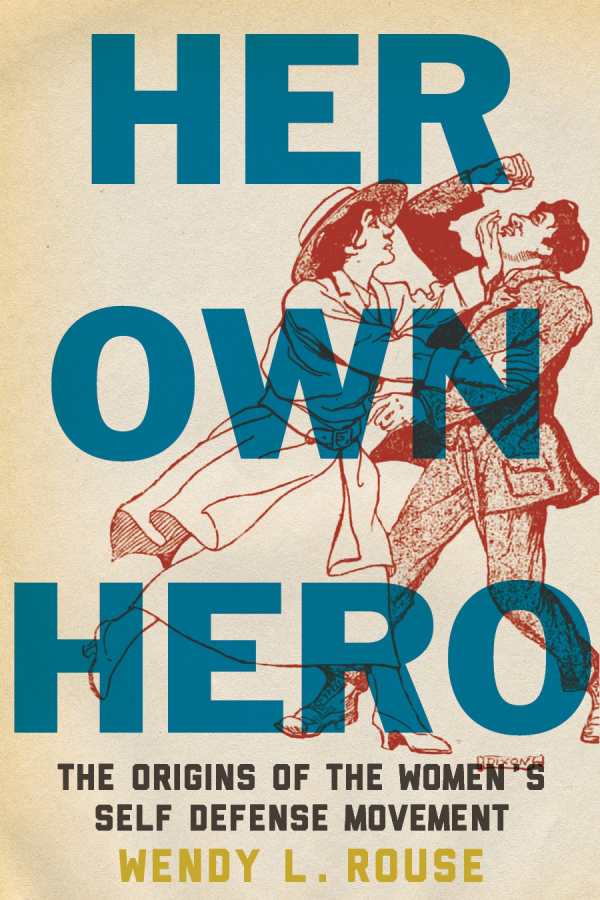Her Own Hero
The Origins of the Women's Self Defense Movement
Her Own Hero is a highly readable study whose historical accounts of sexism and xenophobia bear repeated discussion.
Wendy L. Rouse’s Her Own Hero examines the social conditions that led to the women’s self defense movement of the early twentieth century, showing how interest in exercise, increased independence for well-off women, and fear led women to martial arts.
Martial arts turn out to be a great lens for examining increasing freedoms in a time of industrialization, urbanization, and immigration, though the book also gives a clear overview of America’s prejudices and limitations. This is a realistic study of women’s progress that considers race and class in addition to gender, resulting in work that is academic, but also a pleasure to read.
A chorus of historical voices offer both progressive and outdated attitudes. For every inspiring news item of a woman defending herself, for every group of society girls practicing jiujitsu on the White House lawn, there are accounts like that of a Harvard doctor who warned, in 1873, that physical exertion during menses would leave young women sterile, or eugenicists who wanted to protect women from theoretical attackers in order maintain racial “purity.”
There are notables on both sides: Theodore Roosevelt declaring that boys, not girls, should be made to fight to toughen up; Charlotte Perkins Gilman defending the woman who fights back in both her fictional stories and articles.
Because some sources offer limited information, the scholarship doesn’t always delve into full characters or scenes, but enough detail is present to flesh out the narrative arc of the self-defense movement’s rise. An impression of life a century ago is also enhanced with compelling historical images. There are old news items, archival photos, and cartoons included; they are sometimes humorous, and sometimes show how far we’ve come.
The book’s five sections could each stand sturdily alone. Her Own Hero is a highly readable study, and its histories of sexism and xenophobia bear repeated discussion.
Reviewed by
Meredith Grahl Counts
Disclosure: This article is not an endorsement, but a review. The publisher of this book provided free copies of the book to have their book reviewed by a professional reviewer. No fee was paid by the publisher for this review. Foreword Reviews only recommends books that we love. Foreword Magazine, Inc. is disclosing this in accordance with the Federal Trade Commission’s 16 CFR, Part 255.

